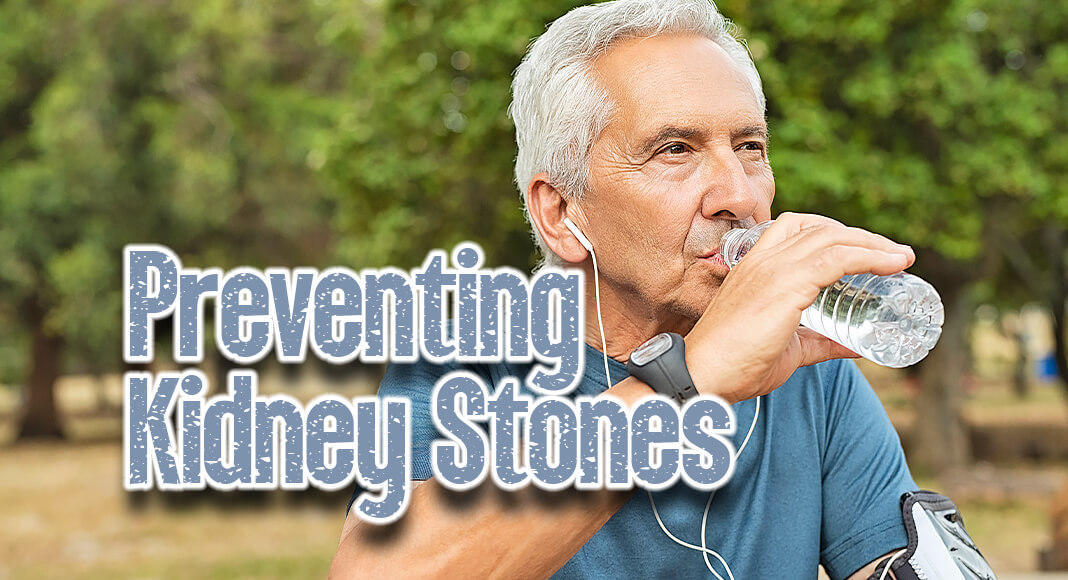
Mega Doctor News
By Mayo Clinic Staff
Kidney stones are small, hard deposits made of minerals and reoccurring materials inside the kidneys. Stones often go unnoticed in the kidney until they move into the ureter —the tube connecting the kidney and bladder.
If a stone leaves the kidney and blocks urine from exiting, usually while in the ureter, it can cause urine to back up and lead to intense pain.
Kidney stones are common, affecting about 12% of the U.S. population. Kidney stone development usually begins when people are in their 20s or 30s, and the problem can continue for years.
Many things can increase your risk for stones, including family history, health factors like diabetes, dietary habits or if your urine lacks substances to prevent crystals from sticking together.
Types of kidney stones
There are four types of kidney stones. Knowing the type of your kidney stone will help determine its cause and give you clues on how to reduce your chance of developing more stones. If you pass a kidney stone, try to save it to give to your healthcare team for analysis.
Types of kidney stones include:
- Calcium stones
This is the most common type of kidney stone. About 70% to 80% of kidney stones are calcium stones, which are usually made of calcium and oxalate. Oxalate is a substance produced by the liver and also absorbed from your diet. Certain fruits and vegetables, like spinach, have high oxalate content. Taking high doses of vitamin D and vitamin C, gastric surgery and several metabolic disorders can increase the concentration of calcium or oxalate in your urine.
Calcium stones can also be made of calcium phosphate. This type of stone is more common in people with metabolic conditions like renal tubular acidosis. It may also be associated with some medications used to treat migraines (topiramate) or blood pressure (furosemide or triamterene).
- Struvite stones
Struvite stones can form after a urinary tract infection. These stones can grow quickly and become large, sometimes with few symptoms or little warning. - Uric acid stones
Uric acid stones can form in people who lose too much fluid because of chronic diarrhea or malabsorption, eat a high-protein diet or who have gout. Certain genetic factors also may increase your risk of uric acid stones. - Cystine stones
These stones form in people with a hereditary disorder called cystinuria, which causes the kidneys to excrete too much of a specific amino acid.
Preventing kidney stones
Nearly 50% of people who have developed kidney stones will develop another stone in 10 years if they do not take steps to prevent a recurrence. Usually, this includes a combination of lifestyle changes and medications.
Lifestyle changes
You may reduce your risk of kidney stones if you:
- Drink water throughout the day.
People with a history of kidney stones should drink enough fluids to pass about 80 oz (2.5 liters) of urine every day. This is the most effective therapy available to prevent future kidney stones. Your healthcare team may ask you to measure your urine output to ensure you drink enough water. - Eat fewer oxalate-rich foods.
Switching to a diet low in oxalates can reduce your risk of calcium oxalate stones. Foods that are highest in oxalates include spinach, rhubarb, baked potatoes, lentils, navy beans, bran, grits and almonds.
A high amount of salt and animal protein in your diet can also increase your kidney stone risk. A diet lower in sodium and higher in potassium — contained in many fruits and vegetables — can reduce the risk of stone formation.
- Continue eating calcium-rich foods, but use caution with calcium supplements.
Calcium in food can actually lower your risk of kidney stones. Continue eating calcium-rich foods unless your healthcare team recommends otherwise. Talk with your healthcare team before taking calcium supplements, however, because these may be linked to an increased risk of kidney stones. - Take steps to reduce urinary tract infections.
Some people are more susceptible to developing recurrent urinary tract infections. Fewer infections can reduce the risk of developing struvite stones. Get tips for preventing urinary tract infections.
Medications
Medications can control the amount of minerals and salts in the urine and may be helpful in people who form certain kinds of stones. The type of medication your doctor prescribes will depend on the type of kidney stones you have and the specific makeup of your urine, which is determined by testing. Some medications can reduce uric acid levels in the blood and reduce your risk of uric acid stones, while others increase the solubility of cystine in your urine and lower your risk of cystine stones.
Kidney stone formation is specific to each person, so it’s important to work with your healthcare team to develop a personalized treatment plan. That plan should consider what kind of kidney stones you have, possible causes for their formation and specific steps to prevent them.
Spencer Bershow, M.D., cares for patients in Urology in Mankato and New Prague, Minnesota.
Information Source: Mayo Clinic Health










